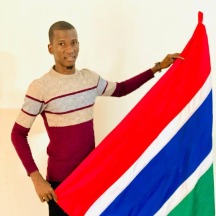In many parts of the Gambia, the issue of student prayer in schools continues to be a contentious and divisive topic. On one side, there are those who argue that prohibiting prayer on school grounds is a necessary safeguard of the separation of church/mosque and state. They contend that allowing organized prayer would amount to the government endorsing a particular religious viewpoint, which they see as unconstitutional.
On the other hand, proponents of student prayer in schools argue that banning the practice infringes on students' fundamental rights to freedom of religion and free expression. They contend that students should be free to pray individually or in small groups during non-instructional time, without fear of punishment or reprisal from school authorities.
Supporters of student prayer in school point to surveys showing that many students and their families want the option to pray in school. They argue that prohibiting the practice marginalizes the religious beliefs of a significant portion of the student population. Additionally, they note that student-led prayer, as opposed to school-sponsored prayer, does not necessarily constitute a government establishment of religion.
Opponents counter that even student-initiated prayer can create a coercive environment, with students feeling pressure to conform to majority religious views. There are also concerns that certain students may feel uncomfortable or excluded if overt religious practices are allowed in school.
The Debate over Student Prayer in Schools

Ultimately, the debate hinges on how to balance the competing principles of religious freedom and the separation of church/mosque and state within the schoolhouse gates.
As society continues to grapple with this complex issue, it will be important for policymakers, educators, and the public to engage in thoughtful, nuanced dialogue. The goal should be to find ways to protect the rights of all students, regardless of their religious beliefs or lack thereof, while preserving the secular nature of public education.
In Kenya, in May 2023, Appellate judges declared that forcing learners to attend school prayers is unconstitutional. The dispute started when nine Jehovah’s Witnesses pupils, through their guardians, sued a primary school for forcing them to attend mandatory Catholic mass every Friday.
In the United States, public schools are banned from conducting religious observances such as prayer. Private and parochial schools are not covered by these rulings, nor are colleges and universities. The United State Armed Forces Chaplains Board recognizes 221 faith groups.
As society continues to grapple with this complex issue, it will be important for policymakers, educators, and the public to engage in thoughtful, nuanced dialogue. The goal should be to find ways to protect the rights of all students, regardless of their religious beliefs or lack thereof, while preserving the secular nature of public education.
In Kenya, in May 2023, Appellate judges declared that forcing learners to attend school prayers is unconstitutional. The dispute started when nine Jehovah’s Witnesses pupils, through their guardians, sued a primary school for forcing them to attend mandatory Catholic mass every Friday.
In the United States, public schools are banned from conducting religious observances such as prayer. Private and parochial schools are not covered by these rulings, nor are colleges and universities. The United State Armed Forces Chaplains Board recognizes 221 faith groups.
Advertisers | Contact Us | Events | Links | Media Kit | Our Company | Payments Pier
Press Room | Print Cover Stories Archives | Electronic Issues and Talk Radio Archives | Writer's Guidelines






